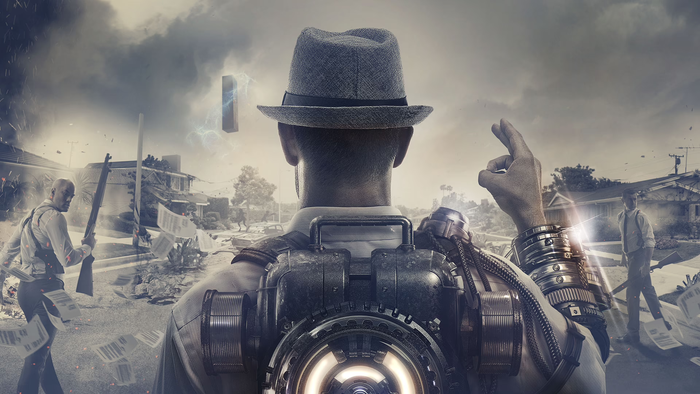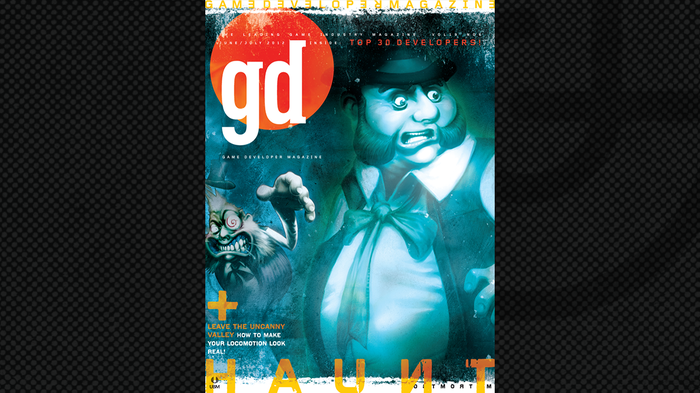Avoid Financial Loss Due to Consumer Drop Off - Vendor Selection for Game Localization
Myth #2: Translation vendors are all built the same. There's no difference in one agency versus another. A: Without a broad understanding of the quality issues you may encounter, you are risking financial loss due to consumer dropoff.

[Originally posted on LAI's blog.]
Fact: Over 50% of worldwide video game revenue comes from markets outside the US.
Despite the importance of making games available in a variety of languages for gamers across global markets, translation and localization is still a source of confusion for many developers. Due to the number of easily-avoided issues encountered by game translation and localization companies on a regular basis, we realized the value to the entire development community to dispel common myths regarding the localization process, thereby perpetuating a network of informed developers to ultimately enhance decisions regarding game translation, producing a global library of games with quality localization.
In part 1, you learned the ways in which changing localization vendors can actually have a negative impact on your company’s financial statement and also received a quick look at the quality concerns between different vendors. In this post, we will delve further into the core issues that sets vendors apart from one another. In case you missed the first installment of our 5 part Game Localization Myth series, be sure to check out “Myth #1: A translation is a translation is a translation – In the long run, cheaper is better for my company’s bottom line, so I should always be searching for vendor alternatives.” Feel free to send us feedback on our Twitter page @LanguageAutoInc.
Myth #2: Translation vendors are all built the same. There’s no difference in one agency versus another.
Would anyone dare to apply this same logic to video games? Example – Mario and Mortal Kombat are both video game series, so they’re roughly the same entertainment experience. No! You wouldn’t give Mortal Kombat (hopefully) to a young kid looking to be entertained. Why not? Mario and Mortal Kombat belong to two entirely different genres of games –Mario won the hearts of families around the world through his appearance in child and family-oriented games, whereas Mortal Kombat is a mature fighting series that would have parents picketing outside of game stores if marketed to or placed in the hands of children. Just as there exists large gaps in the experience provided by games of different genres, so too, exists a significant difference in translation vendors and their abilities to adequately bring your video games to global markets.
First of all, there are translation agencies that try to cater to everyone – legal, medical, website translation, video games – they do it all! But didn’t anyone ever warn you that you can’t be everything to everyone? While some companies may be large enough to where they can successfully pull off such a feat, it is unlikely they will be able to provide the specialized services of a company focused solely upon video game translation and localization, meaning not only will you lose the opportunity to take advantage of service offerings designed for your game studio or publishing company but you may also not have access to a wide breadth of languages and a large team of translators who understand video game vocabulary and gaming culture necessary for quality translation.
Then there are the differences in quality. While price doesn’t always indicate quality, there is likely an important reason for translation agencies charging significantly less for their services. After all, if you were searching high and low for a top-of-the-line sports convertible and found a new one for less than $10k, you probably wouldn’t be overjoyed the price. Rather, you would likely be left wondering what’s wrong with the car and who’s trying to scam you. You’re not being pessimistic, it’s just a fact of life – quality products and services require money. And since you’re ultimately putting your company’s brand on your games (translated games included!), you want to ensure you’re receiving a quality translation. After all, when it comes to your company’s reputation, it’s worth paying full price (unless you’re aching to be the next “All your base are belong to us” case study). All the money in the world sometimes isn’t sufficient for damage control. Who’s to say your cost-effective translation solution wouldn’t result in a crowd-sourced disaster like the racial slur that appeared in Minecraft? Crowd-sourcing-related problems aren’t the only quality issues to consider in translation and localization.
Your game could end up in the hands of a translator who understands the source language and target language but doesn’t understand gaming language, posing a big problem for gamers who expect game-centric words like “rez” and “drop” to read correctly in the target language as opposed to an absurd translation like “resolution” for “rez” and “faint” or “release” for “drop.” (As discussed in our previous article, just because you are fluent in 2+ languages does not mean you are fluent in “gamer” jargon.)
In addition, some translation companies don’t hesitate to place non-native speakers on translation projects. While you might be able to understand the use of a translator “practically” fluent in the target language, would you be so understanding if your translation agency places a student on your game translation with only a couple semesters of experience in the target language? Would it help if the student stayed abroad in the relevant country for a summer or two? These are just some of the quality issues you may encounter with certain translation companies.
Unfortunately, you likely won’t be able to assess for yourself whether your localization provider is providing quality localization for each translated version of your game, since only a select few people in existence have been able to speak the number of languages necessary for adequately expanding the global reach of your video game.
This is why you need a company you can trust, a company with proven experience for a wide array of industry leaders. Translation companies are not built the same. In addition to using translators who don’t speak gamer or don’t speak the target language well enough to translate your game accurately, companies may go a step beyond crowdsourcing and simply run sections of your game (perhaps even your whole game) through Google Translate. (See myth #5 when it comes out Nov. 16th to learn why this is a bad, bad idea.) This is why you want to ensure your translation company has built in methods for ensuring quality, such as review by a second linguist and quality assurance for multiple elements (including UI limitations and consistency of terminology).
Make sure you do your homework – What is the business model of your translation agency? Who are their clients, and what is their satisfaction level? If you catch wind of the use of translation techniques that result in poorly translated games, it is better for your company to find another organization with a business model you approve of. The pennies you save per word with certain translation agencies will not be worth it in the long run. Gamers frequently cite “immersion” as a key factor for the enjoyment of video games and will very quickly lose confidence in the quality of your products if the translation is off, resulting in financial loss due to consumer drop off as opposed to the financial gain you seek by taking your games to foreign markets.
Be sure to check back on our blog Friday, November 9th for myth #3. Until then, here’s a snapshot into the future:
Myth #3: Prior localization efforts are unnecessary to current translators of my games.
In this upcoming post, learn how to avoid paying threefold unnecessarily by effectively utilizing work that has already been done.
Read more about:
BlogsAbout the Author
You May Also Like









